Another of my numerous Melanie acquisitions from the MaTones $5 bins during the depths of the pandemic. By that point in 2020, afraid to go anywhere and seeing worse times coming, if I saw a Melanie record, I bought it, no questions asked. And I was never disappointed.

But when I acquire a lot of an artist’s work, even over a short period of time, there will be a shakeout, some records that float to the top and get played whenever I want to hear the artist, others that float somewhere in the middle, getting occasional play, and of course, there may be some I decide I rarely need to hear.
I’d say Garden in the City, released in November 1971, floats in the middle. I was a bit curious as to what others thought of the album which is, after all, a Melanie record from a time when she was very prolific, at the peak of her abilities perhaps. So I checked the Allmusic review, which revealed that this was, in fact, a release of songs left behind from other albums (along with a song from a movie soundtrack) that was put out by Buddah after she had left the label. I guess that makes sense for the song selections – as much as I want to like it, I’m not sure she was the right person to cover the Rolling Stones’ “Jigsaw Puzzle,” for example. Her originals are perfectly fine, but not her peak. However, if it was an attempt by Buddah to milk their rights to these songs, they went to great lengths in the production. The cover is a die-cut gatefold – the skyscrapers open up to reveal Melanie standing before mountain greenery. The inside of the fold does promote other Melanie albums, something you’d expect more of an inner sleeve, but they had all that real estate so why not.
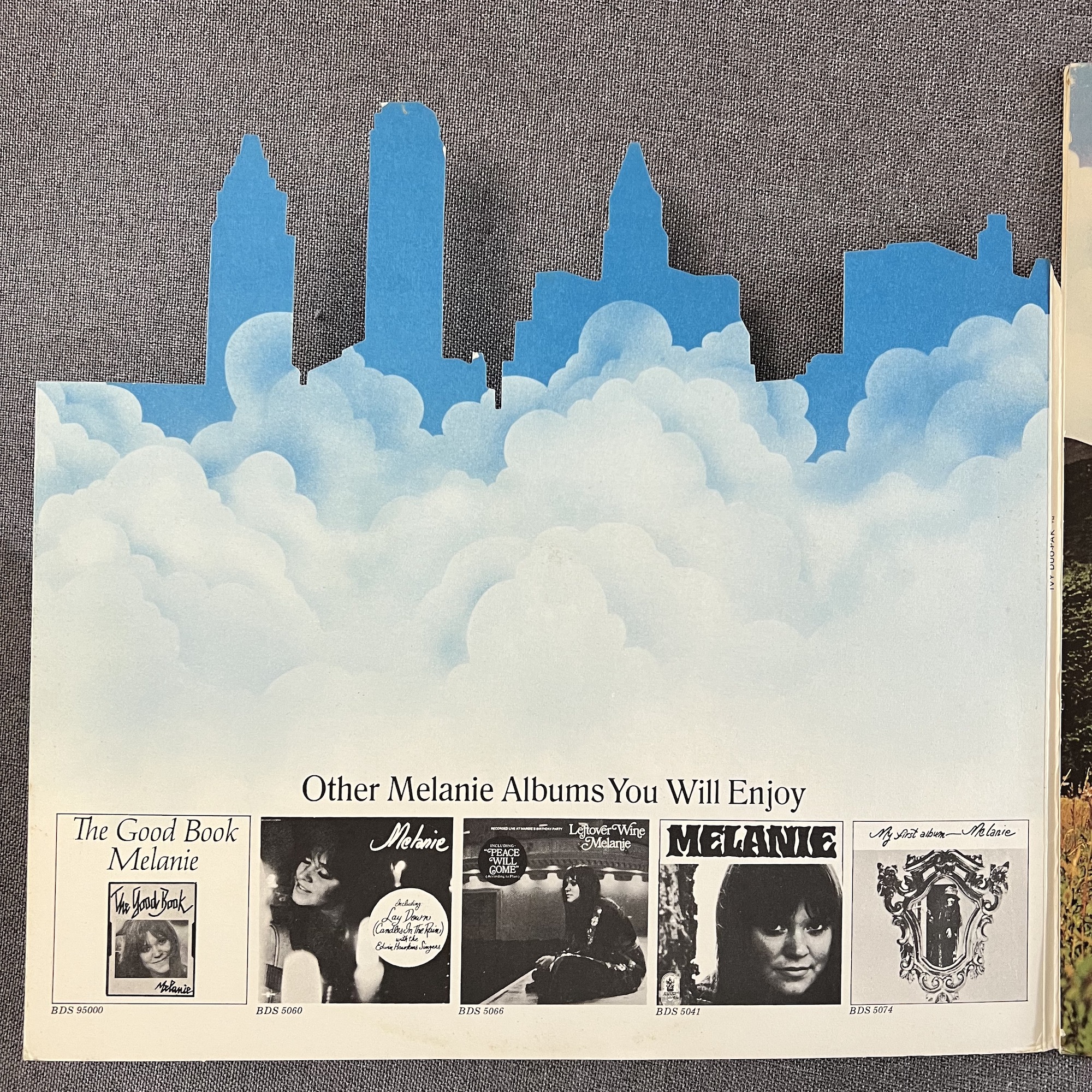

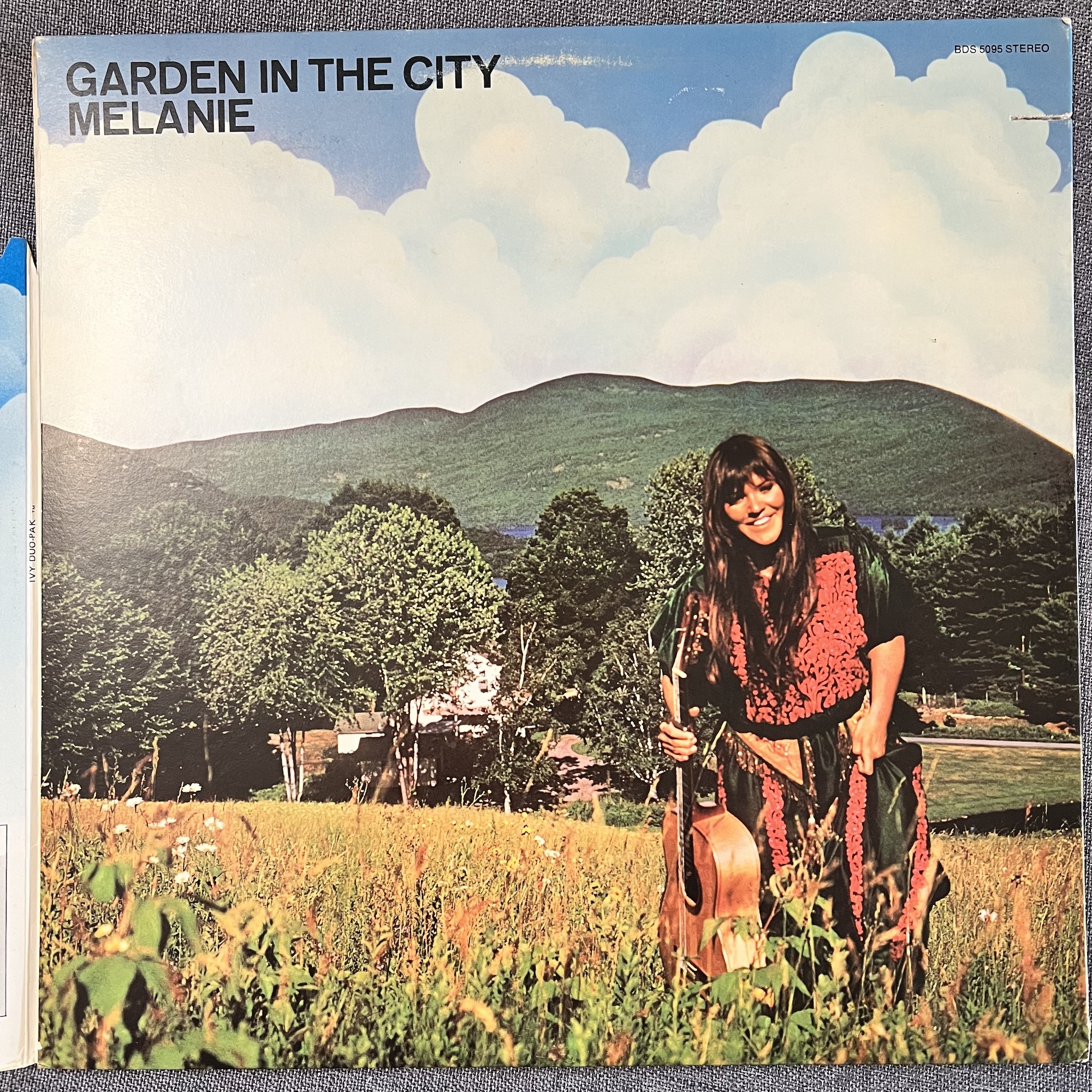
Inside, there is even more Melanie promotion – a booklet promoting “Melanie’s Good Book,” a 128-page songbook containing music, lyrics, photos, a jumbo poster, and original organic recipes, all for just $4.95. So despite having lost the artist, who apparently left to form her own label because Buddah was demanding too many albums of her, they were still promoting the hell out of her. That’s because they had the rights to everything she had written and recorded with them, but curiosity revealed an interesting court case in which Melanie sued the Kama Sutra Group (Kama Rippa Music specifically) for failure to pay her royalties, and the courts found that had triggered the return of the rights to her. She had a pretty good contract for 1971. It’s all here for the legally curious.
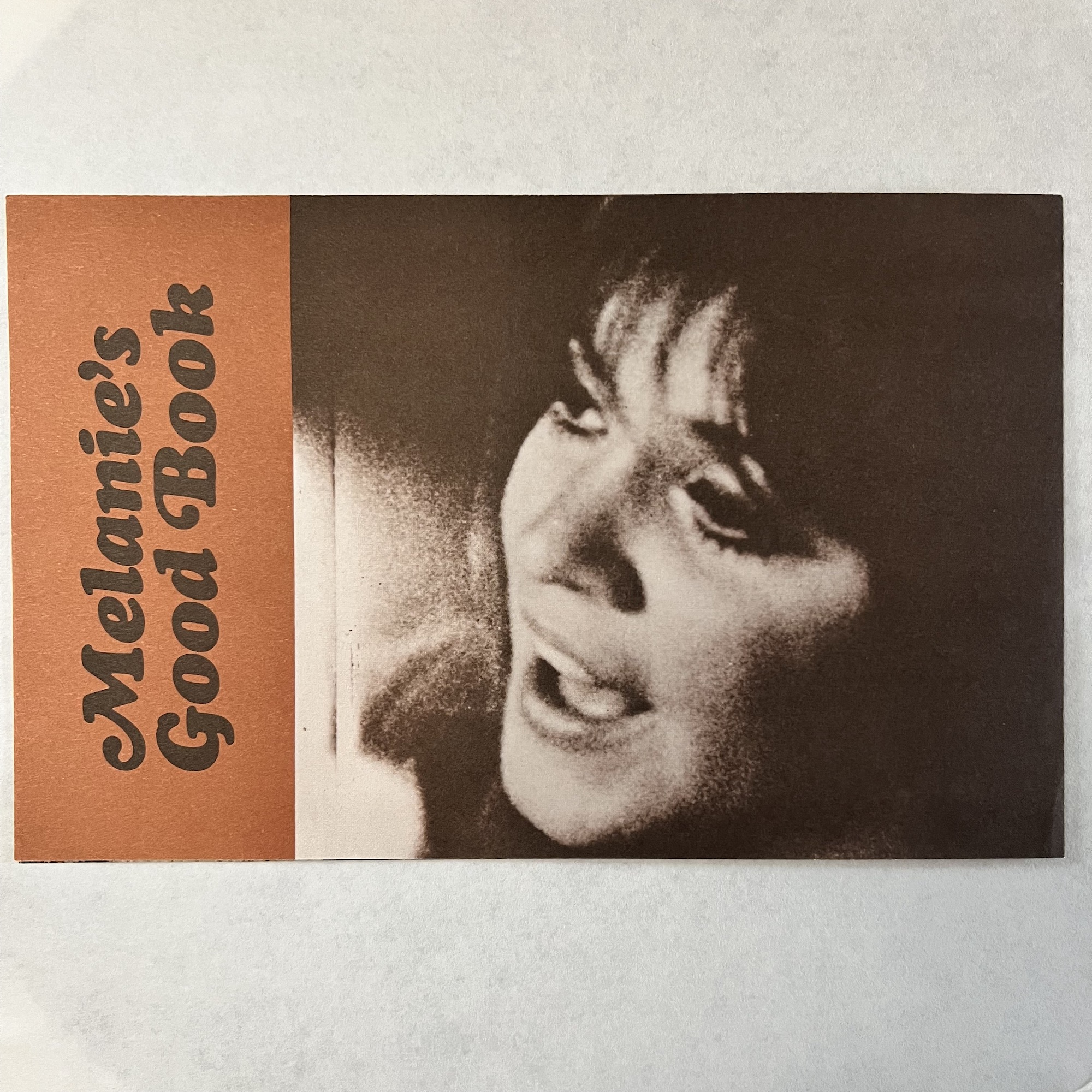
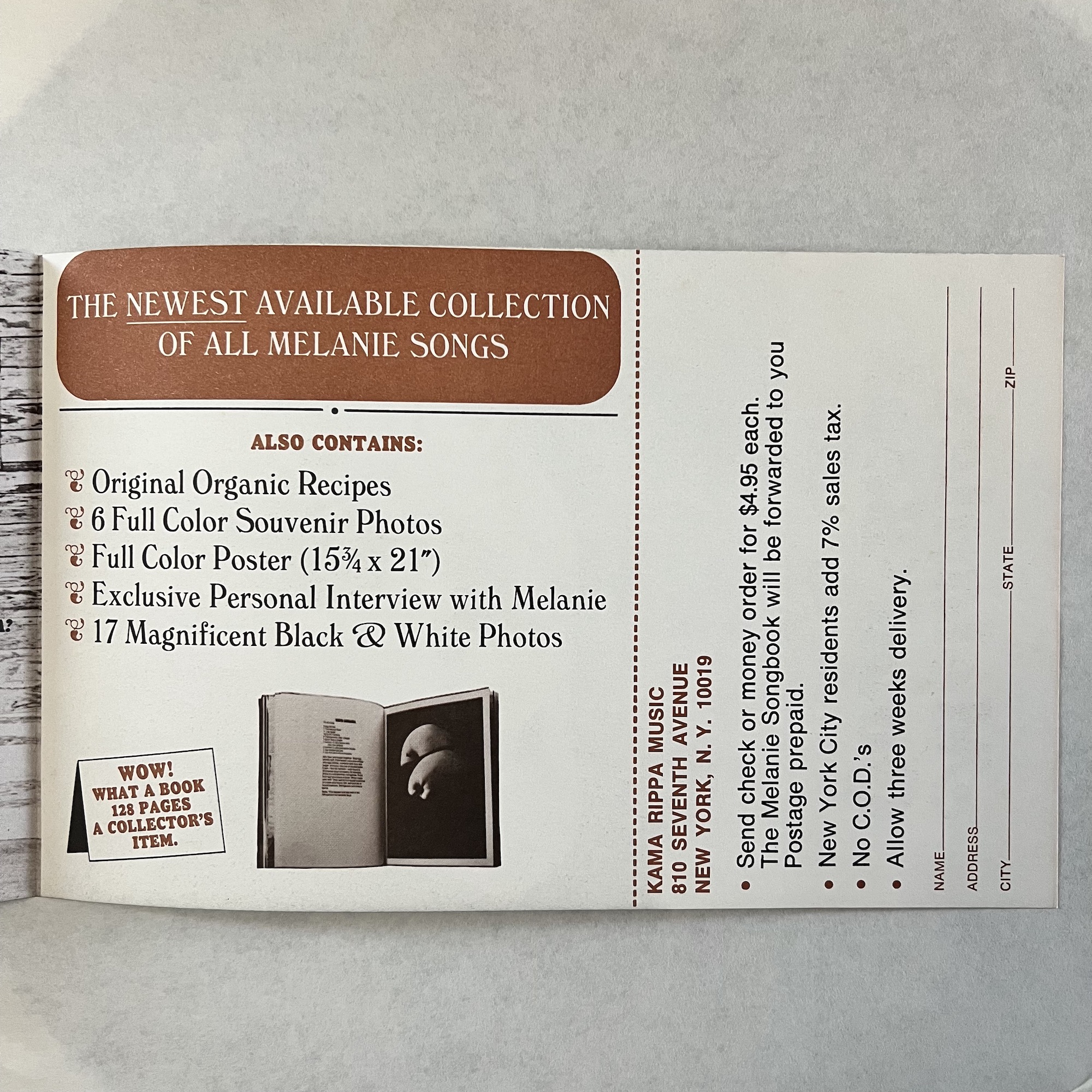
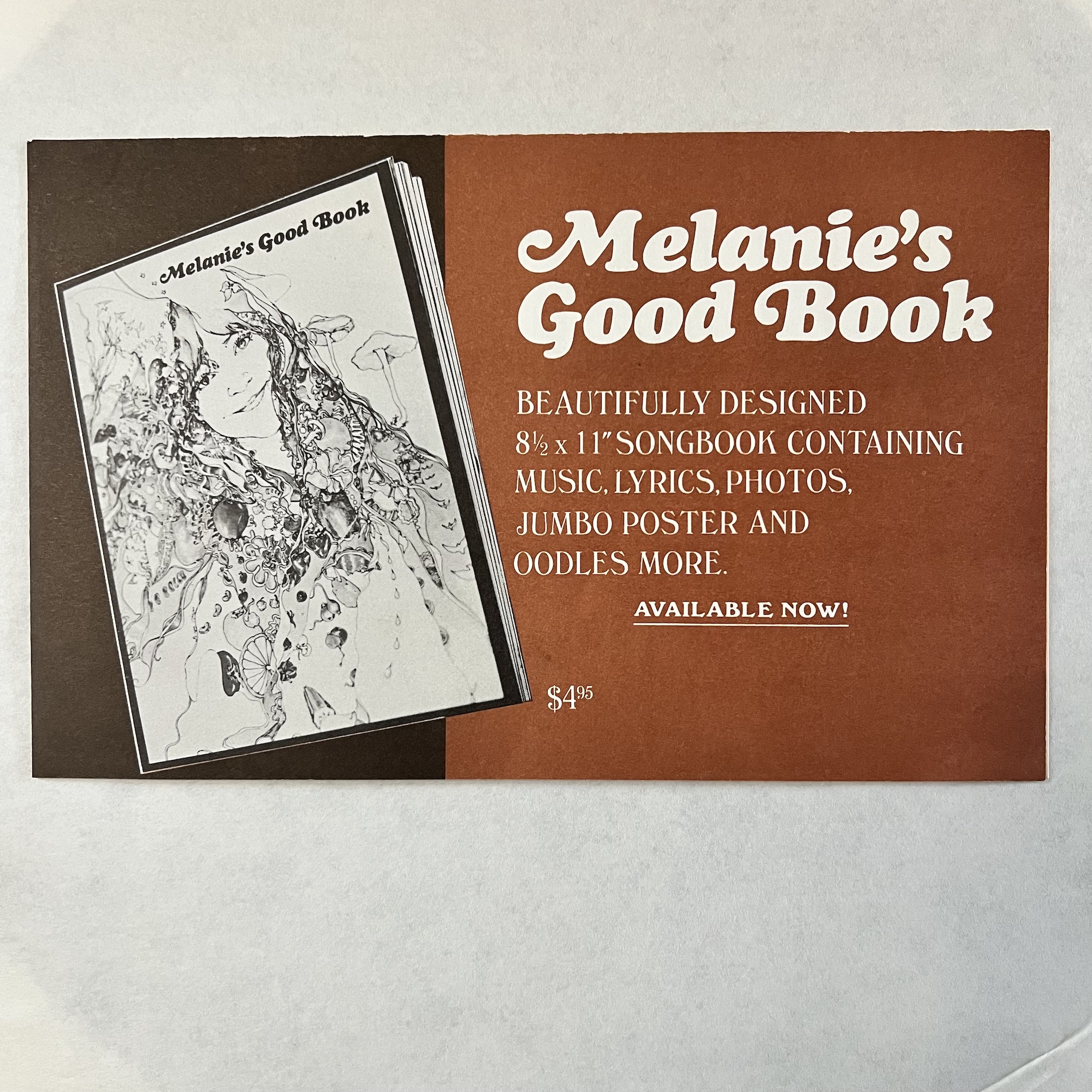
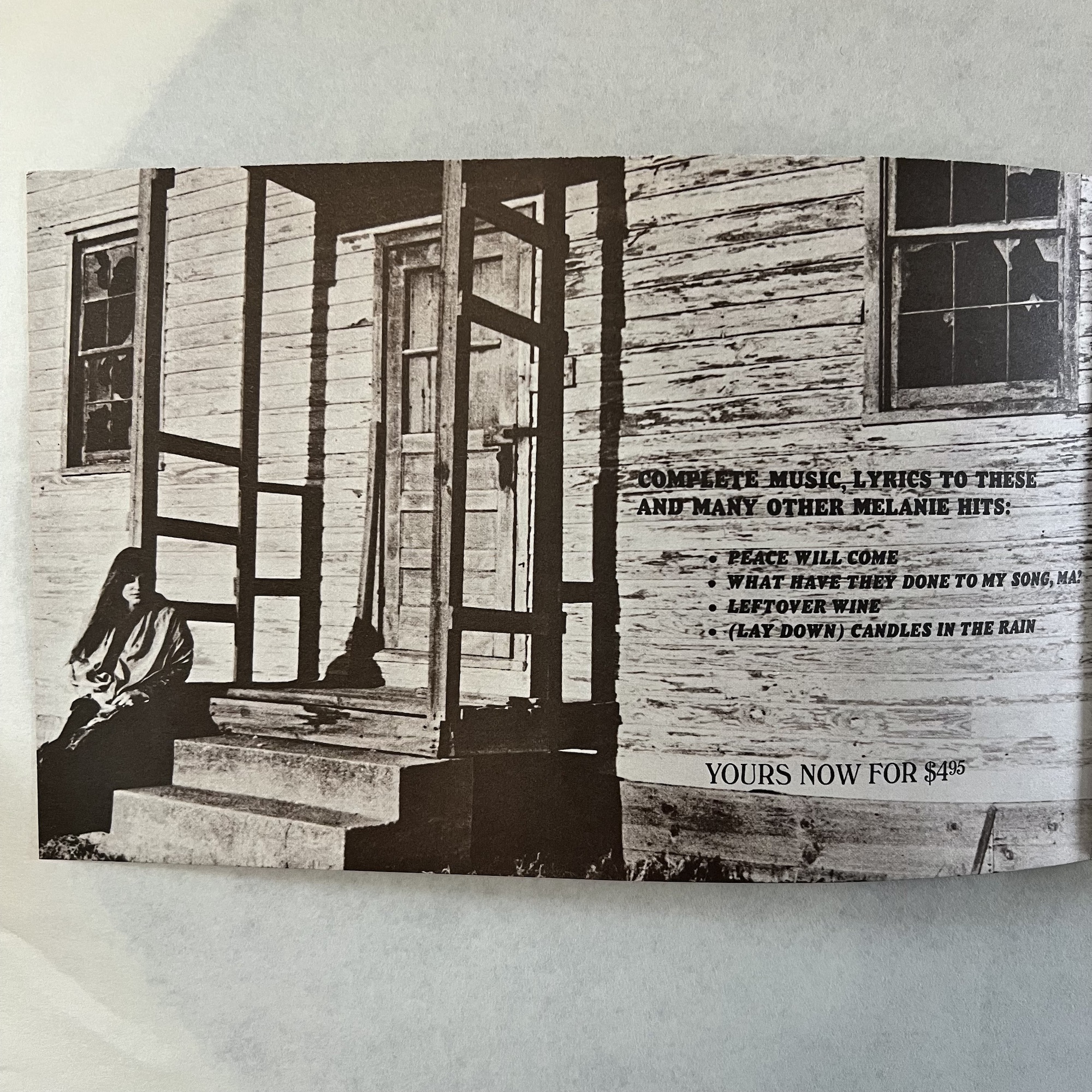

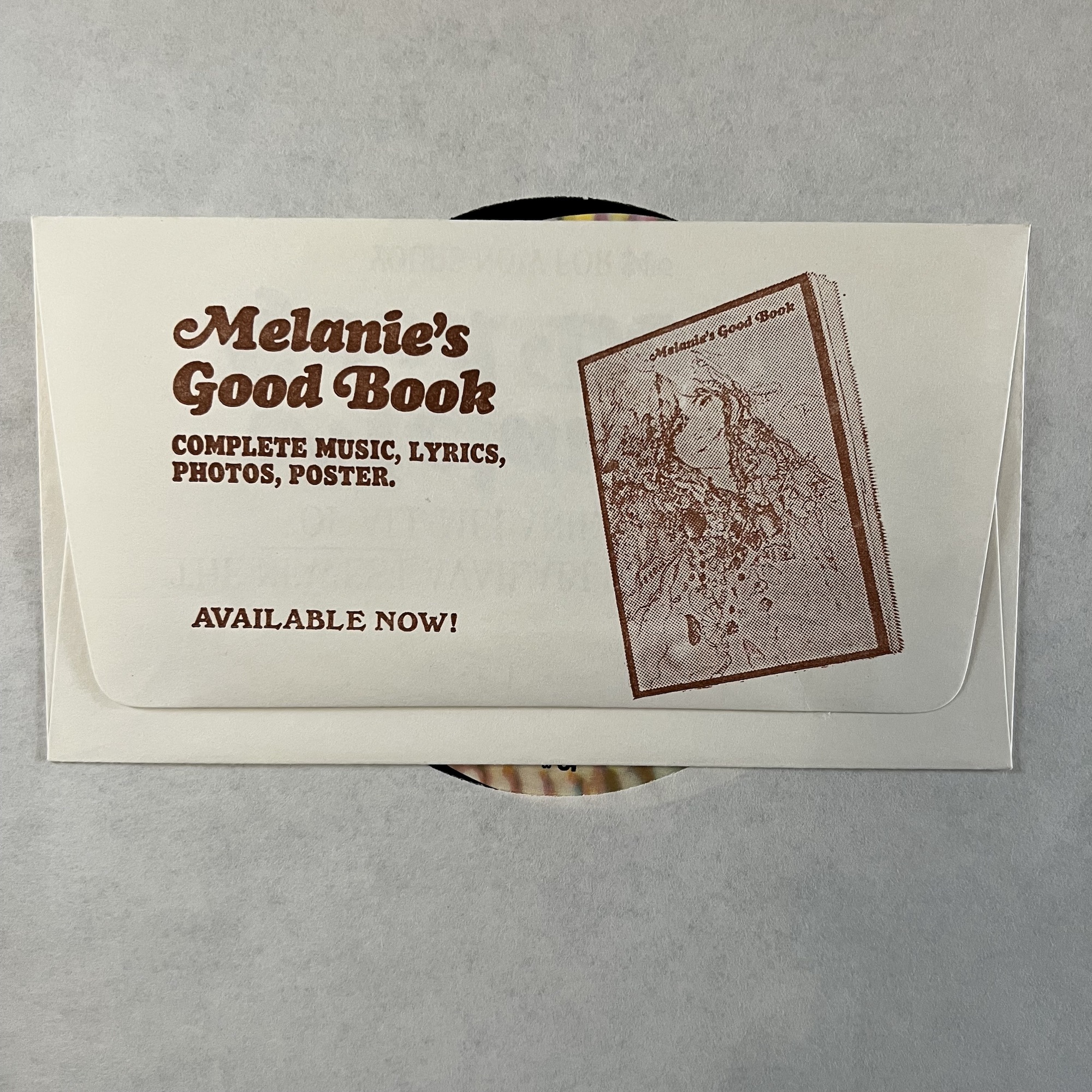

Anyhow, there are better Melanie albums, and though I said this floats to the middle, now that I think about it, innovative packaging notwithstanding, I play all my seven other Melanie records before I get to this one.
